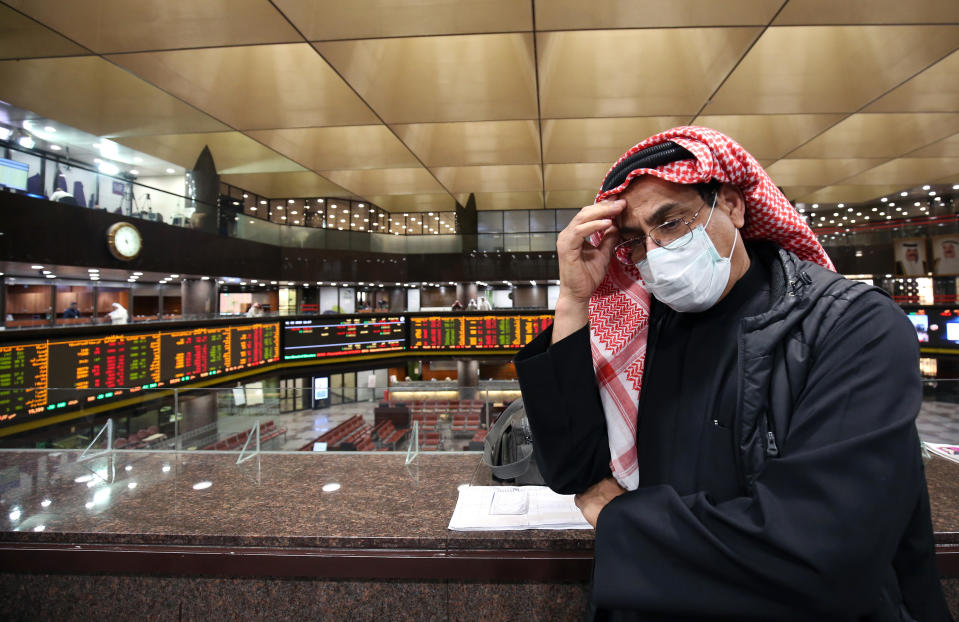Coronavirus 'biggest threat to global economy since financial crisis'

The Organisation for Economic Co-operation and Development (OECD) on Monday slashed its forecasts for economic growth in 2020, warning that the spread of coronavirus is the biggest threat to the global economy since the 2008 financial crisis.
The OECD now expects the world’s economy to grow by just 2.4% in 2020. That would represent the slowest annual GDP growth since 2012 and compares with a forecast of 2.9% made in November.
“Even in the best-case scenario of limited outbreaks in countries outside China, a sharp slowdown in world growth is expected in the first half of 2020 as supply chains and commodities are hit, tourism drops and confidence falters,” the OECD said in its interim report.
In a worst-case scenario where coronavirus spreads widely Asia, Europe, and North America, growth would half to just 1.5% in 2020.
Read more: Europe’s economy braces for coronavirus hit as market panic grips
The OECD said the spread of coronavirus “presents the global economy with its greatest danger since the financial crisis.”
“The virus risks giving a further blow to a global economy that was already weakened by trade and political tensions,” said OECD chief economist Laurence Boone.
The spread of deadly COVID-19 provoked the closure of factories across China and activity shrank at the fastest rate on record in February, according to data released over the weekend. The OECD now expect’s China’s economy grow by just 4.9% this year, compared to 6% in 2019.
The recent spread of COVID-19 to Europe and North America has led to speculation about similar shutdowns and travel restrictions beyond China. Credit Suisse said on Monday that if Europe copied China’s measures, GDP could shrink by 4% in one quarter.
Read more: Twitter, Amazon, Nike and more take emergency coronavirus precautions
Even if economic disruption remains largely limited to China, knock-on effects are already hitting other economies. The factory slowdown has disrupted global supply chains for giants like Apple and a decline in Chinese tourism has hit the luxury sector. The spread of the novel coronavirus has hit global tourism more broadly.
Last week, $6tn was wiped off global stock markets amid fears about the economic fallout from the COVID-19 epidemic.
The OECD on Monday downgraded growth forecasts for every member nation, bar Saudi Arabia which was left unchanged.
Read more: Why stock markets are panicking about coronavirus
Boone called for governments around the world to introduce extraordinary measures to support businesses, including tax relief for tourism businesses, flexible working regimes to preserve jobs, and extra liquidity support for banks.
“Governments need to act immediately to contain the epidemic, support the health care system, protect people, shore up demand and provide a financial lifeline to households and businesses that are most affected,” Boone said.
The Bank of Japan on Monday pledged to support the country’s economy, while Italy’s government announced a €3.7bn (£3.2bn, $4bn) stimulus package over the weekend aimed at combating the effects of COVID-19.

 Yahoo Finance
Yahoo Finance 